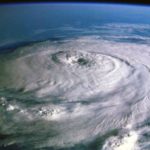 The 2012 Atlantic Hurricane Season officially begins on June 1st, and continues throughout the summer and fall months until November 30th. That’s not to say hurricanes can’t or won’t develop outside of this six-month window, but it’s within this time period that the majority of significant hurricanes take shape.
The 2012 Atlantic Hurricane Season officially begins on June 1st, and continues throughout the summer and fall months until November 30th. That’s not to say hurricanes can’t or won’t develop outside of this six-month window, but it’s within this time period that the majority of significant hurricanes take shape.
Thankfully, most experts – including those affiliated with The Weather Channel, my go-to for all weather-related questions, predictions, etc. – anticipate the 2012 Atlantic Hurricane Season to be a relatively mild one, with 11 named storms, six hurricanes, and two major hurricanes (Category 3 or higher).
While this prediction is considered good news, it isn’t reason enough to avoid hurricane preparedness, especially for those people who live in areas of the country where hurricanes frequently make landfall (Texas, Louisiana, Florida, North and South Carolina, and up the East Coast). After all, a hurricane season with even just one or two strong storms could be considered worse and do more damage than a hurricane season with 15 weaker storms.
First, let’s review what to do when a hurricane is headed your way:
• Listen to a NOAA Weather Radio for information about weather conditions in your area.
• Restock your disaster supply kit and review your family and community disaster action plans.
• Prepare your home by bringing inside anything that could be picked up by strong winds; closing windows, doors, and hurricane shutters; turning the refrigerator/freezer to its coldest setting (to help food last longer if the power goes out); turning off propane tanks; and unplugging small appliances.
• Evacuate if advised by authorities to do so.
And now, let’s review what to do after a hurricane has struck:
• Continue listening to a NOAA Weather Radio for information about the storm as well as for information about when it is safe to leave your home (if you did not evacuate) or return to your home (if you evacuated).
• Avoid flooded areas and buildings, keep away from loose or dangling power lines, drive only if necessary, and use the telephone only for emergency calls.
• Inspect your home, both the structure and the contents, for and take pictures of damage.
 Remember to visit the American Red Cross website for more information about hurricane safety before, during, and after the storm, as well as information about stocking your disaster supply kit, creating a disaster action plan for your family, and rebuilding after a hurricane.
Remember to visit the American Red Cross website for more information about hurricane safety before, during, and after the storm, as well as information about stocking your disaster supply kit, creating a disaster action plan for your family, and rebuilding after a hurricane.

